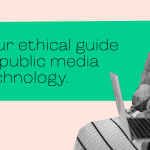
Muckrock and Outlier Media
Interview with Sarah Alvarez, Mitchell Kotler and Michael Morisy
February 2020
MuckRock is a nonprofit and collaborative news site that brings together journalists, researchers, activists and everyday people to examine and share government documents with the aim of making politics more transparent. Its portfolio includes MuckRock, a freedom of information request platform; and DocumentCloud, a tool for journalists to analyze and publish documents. Michael Morisy is MuckRock’s Cofounder and Chief Executive. Mitchell Kotler is MuckRock’s other Cofounder and the site’s lead developer and site architect.
Founded in 2016, Detroit-based Outlier Media is a local journalism organization using reporting and text messaging to inform and empower residents, particularly those on low incomes. It provides and responds to requests for information – filling the ‘information gap’ – about housing and utilities, while also holding those in power to account. Sarah Alvarez is their Founder and Executive Editor.
MuckRock and Outlier merged in January 2020.
It’s not enough for us to just produce the reporting that will be impactful, or distribute the information that communities can use. We also have to figure out how to redistribute some of these tools that journalism is built on.
Congratulations on your merger. Can you tell us how this came about?
Sarah Alvarez: Myself and Outlier’s CEO Candice Fortman come from public media. We wanted to build the type of news organization that would do public media reporting for the slice of the public where need is greatest. This isn’t what public media does in the United States when it comes to news coverage. It does do this in other realms; PBS, for example, with its children’s programming. But news is targeted at people who don’t have a lot of information gaps, and who are not facing the most severe consequences because of these information gaps. So that’s what we wanted to design a solution for. Joining with MuckRock made sense to us; because we’re able to increase the number of assets to redistribute to communities when they’re trying to figure out news production – either for themselves, or a smaller newsroom. The news ecosystem continues to change and shrink. It’s not enough for us to just produce the reporting that will be impactful, or distribute the information that communities can use. We also have to figure out how to redistribute some of these tools that journalism is built on. This is what we’re hoping to build with MuckRock – a very community-focused and community-based redistributed news organization.
What’s the biggest challenge that you have right now?
There are always two giant challenges all the time: to figure out how to build news and information products that are of value; then also figure out how to distribute these projects and products to the communities that need them most.
Sarah Alvarez: There are so many! There are always two giant challenges all the time: to figure out how to build news and information products that are of value; then also figure out how to distribute these projects and products to the communities that need them most. Even as a combined organization, we are still a very small organization, and so to do both of these things and to do it in many places is a lot of work. I would like to see public media embracing this challenge in a real way. But because they’re not, it falls on small organizations like ours to try to do this without their money, without their infrastructure, without their distribution systems. It’s easier to add to a distribution system or build channels out of an existing distribution system than to build the whole thing from scratch. And that’s why this combination of organizations makes sense, because we don’t have to build as much from scratch. We can adapt what we have, but it’s still a lot of work.
It’s really exciting to think through what we can do with our user engagement tools to help newsrooms build something where they’re not just broadcasting to the audience, but really involving the audience in their work.
Michael Morisy: The combined organization is both a journalism organization that’s figuring out better ways to serve communities that haven’t been properly served by news organizations; as well as a tool provider in and of itself. So I think that having both under one roof really gives us some good insights into what’s needed out there, and what can be useful for folks. One thing I’m thinking a lot about is how we help newsrooms build deeper relationships directly with their audiences. This is one of the things I’ve always loved about Outlier; that they went out to the audience and community in Detroit, and asked them what information they needed and the ways to best deliver this to them. It’s really exciting to think through what we can do with our user engagement tools to help newsrooms build something where they’re not just broadcasting to the audience, but really involving the audience in their work. One of our big focuses over the next year will be building more user engagement tools, and figuring out how we work this into an editorial strategy. Then if we do more audience engagement, more direct working with them, involving them in our reporting process. This is something that eventually pays off with sustainability, audience loyalty, and stronger news operations in general.
And what does the next 12 months have in store?
Michael Morisy: We’re breaking out parts of our tools that we’ve used for audience engagement and crowd-funding, and building our own standalone membership puzzle project. We think there’s a big gap here that we’re uniquely positioned to fill. So from our technical side, a lot of our focus is going to be on developing tools to help out with this, everything from having your readers help you go through material, to tracking engagement actions over time, and, to a lesser extent, building crowdfunding and newsletter tools. We’re also working on building what Outlier do, so information needs assessments, and starting to think about what this would look like as a product that other communities could benefit from: How we can take the work Outlier has done in Detroit, and replicate their strategy in a way that really delivers usable results for newsrooms, community groups, and others.
We’re always talking with WordPress, and other independent technology providers, in terms of what we can do to integrate what we have with other public media projects in the ecosystem.
Mitchell Kotler: We work with 3000 newsrooms around the world right now. So we’re trying to better understand which parts of our portfolio fit these needs, and the gaps in our portfolio that we can help fill. Then also, thinking through how we do partnerships with other organizations and the public media stack. So we’re always talking with WordPress, and other independent technology providers, in terms of what we can do to integrate what we have with other public media projects in the ecosystem.
Sarah Alvarez: We’re still at the early stages of being a combined organization. We’re working through what this looks like, and the plan for the next year. It’s not that we don’t have a clear vision of what we’re trying to do, but we want to make sure that this vision will actually meet the needs of those we set out to meet. So making sure we have the right tools and the right partnerships, to make what we produce valuable and impactful; that all our systems work together to have this bigger impact; that the information fills gaps, produces accountability, and increases transparency. We never want to lose sight of this.
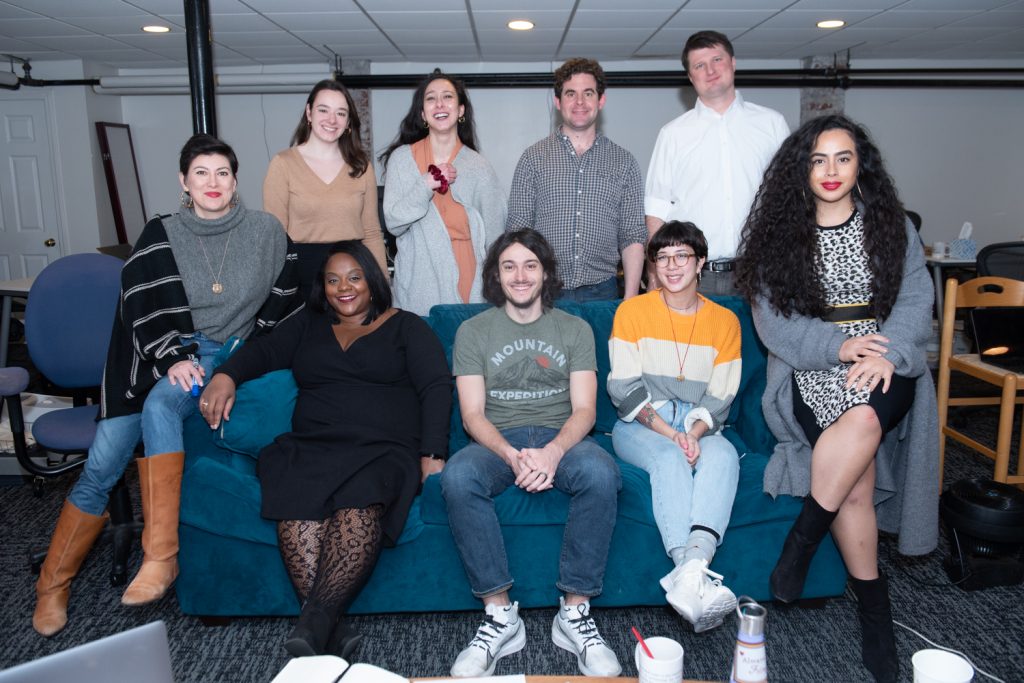
What are the financial implications for you in building these systems?
Sarah Alvarez: Part of the reason Outlier combined with MuckRock is that MuckRock has a service you can pay for. And we at Outlier paid for the service for a long time before we joined together. It’s really rare in media, and especially in the kind of media that we do – very service-oriented journalism – that an organization has this ability to earn revenue for a high quality product. For us on the Outlier team, we’re always really concerned about having a tight feedback loop, that knowing our service is valuable and hitting a mark. And with MuckRock, you know you’re hitting the mark because people are continuously saying the service is important enough to me and to my community that we’re willing to pay for it. This is a real benefit, and something that we really want to continue. At the same time, we still have to be honest that journalism is expensive; and the type of watchdog and investigative work that we think needs to happen, to fill in these information and accountability gaps, is expensive. So of course there are still parts of these news functions that need to be subsidized in some way.
We want to prove there’s a better path towards sustainability for news organizations if they’re more creative than just looking at paywalls and traditional advertising. We’ve shown good evidence of this.
Michael Morisy: We’re much more stable and stronger together, which gives us time to experiment. Right now MuckRock’s revenue is a quarter consulting, a quarter software services, then half from grants and donations. My goal is to get us a little less dependent on grants and donations, and more dependent on services and ongoing replicable models for revenue. But I think we’ve got time to experiment with this. We want to prove there’s a better path towards sustainability for news organizations if they’re more creative than just looking at paywalls and traditional advertising. We’ve shown good evidence of this. If you look at our revenue per thousand readers, it’s $35 to $40 – you’d need a lot of advertising on the site to equal this. I’m hoping that we can take the lessons we’ve learned, and help other newsrooms find new paths to sustainability as well.
Sarah Alvarez: As a combined organization, we have a really good strategy for sustainability. One of the reasons it works for us is because we’re willing to democratize the product and to make it worth being part of. And we’re willing to change the product to meet the needs of its audience. This isn’t something that a lot of news organizations are willing to do, to change their product to meet a specific need in order to unlock additional funding.
What were the biggest tech decisions you made before you merged?
Sarah Alvarez: To move to an SMS newsletter and email engagement platform called Reach NC from North Carolina, and we’ve been really happy with it. We were one of the first organizations to use their suite of tools. The reliability of our old platform was not where we needed it to be, so we looked for something else.
Michael Morisy: A few years ago we merged with DocumentCloud, the largest repository of primary source materials for newsrooms. Most newsrooms host pdfs or documents on DocumentCloud. We serve about 3000 newsrooms and 30,000 users on this platform. It came out in 2009 and hadn’t had a major facelift in a long time. So we decided to rewrite it from scratch, moving it from a rails-based platform to a Django-based platform. It’s currently hosted on Amazon, and we looked at moving it to a different service host, but as this is the biggest technical undertaking we’ve done so far, we decided to leave it there, to not make more work.
Tell us about the dominating tech platforms and what they mean to you. How do you feel about using them?
Michael Morisy: On our last team retreat someone raised concerns about Amazon’s ethical track record. But I think the same is true of all the technical providers. It’s something we evaluate and definitely take into account. Before we even started the organization, one of the things we looked at was a model that would give us independence; so if Google, Facebook or Amazon one day change their model or their terms of service, we still have the ability to work independently from them. We specifically designed ourselves to not be reliant on Google for advertising or Facebook for traffic. We made sure our model leaves us in control of our business strategy destiny, if you will. I remember early on talking with potential funders and they said, ‘well this other group is just doing fantastic riding this wave of Facebook traffic, you’re really missing out’. And then two years later when Facebook tweaked the algorithm, that organization collapsed. That to me is the major concern: how do we have control over fundamental things that give us our independence, or are we dependent on any one provider for support, or our own sustainability? That’s why it’s so so important to me to find ways to develop direct relationships with our audience, with our users, and to help other newsrooms build direct relationships with their audience and users. So I look at stuff like Patreon and Substack, which I think are fantastic for individual creators. But if you’re talking about a newsroom page on Patreon, Substack or Medium, these are all places that help those first stages of building relationships; but you don’t have a direct relationship with your audience, they’re with Substack, Medium and Patreon.
One thing we very much understood was that every decision you make on where your money comes from has implications for the type of coverage you do.
Sarah Alvarez: I think it’s super important from the technical perspective to be in control of your own destiny. Outlier was not a very technical organization when we started. But one thing we very much understood was that every decision you make on where your money comes from has implications for the type of coverage you do. And this has been very true in public media. So moving to membership models, and member-driven models, didn’t drive coverage that was more in touch with the needs of their communities. You not only need ways that will allow you not to be dependent on big funders; but also ways to ensure that the product you’re delivering is going to meet the needs of the people you’re trying to serve, and not be corrupted by whoever it is you get your money from. And that can be a really hard thing. But we’ve always been very in touch with this as have MuckRock. We’re very clear on all of the different models that have been used to fund media, and what some of the unintended consequences of those models have been for coverage.
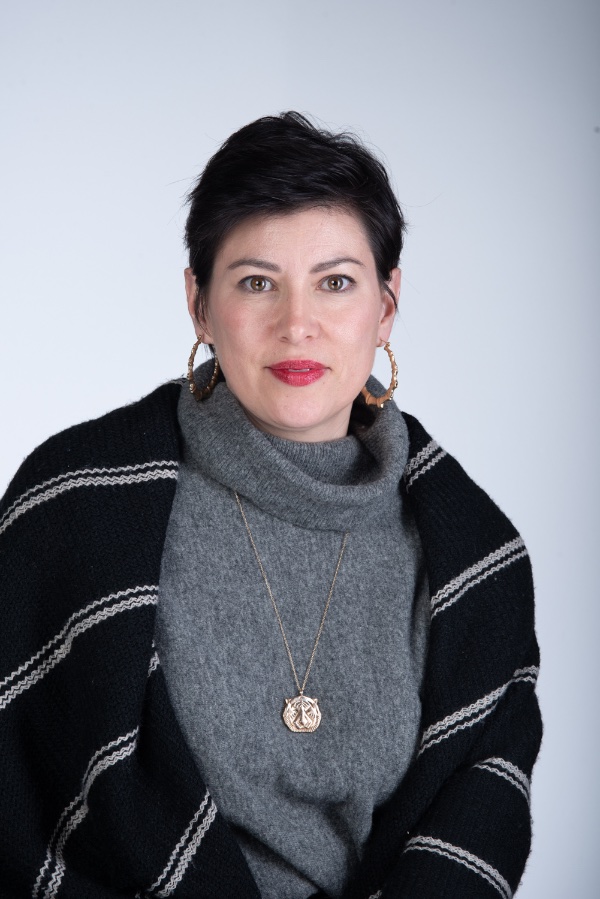
Sarah Alvarez
Founder and Executive Editor of Outlier Media
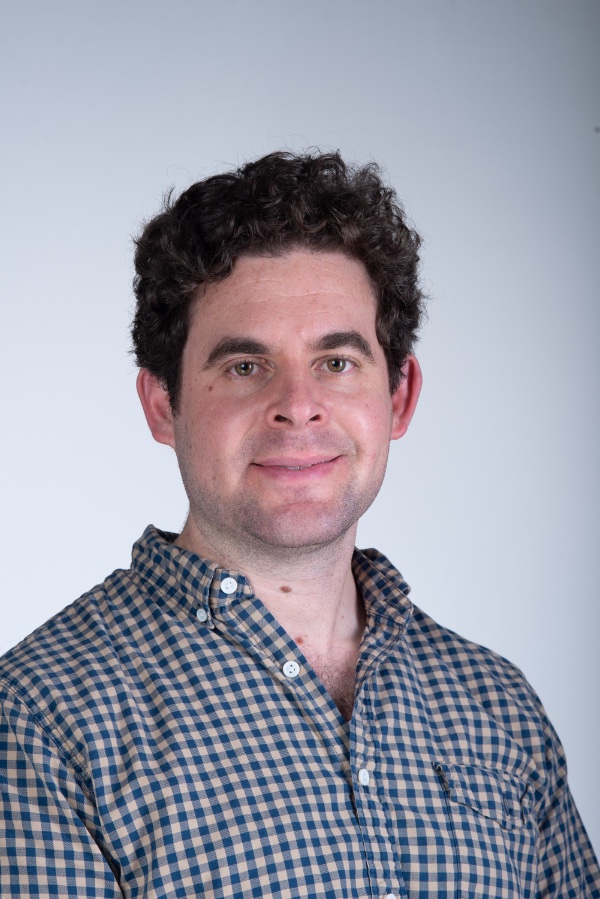
Mitchell Kotler
Cofounder, Site’s Lead Developer and Site Architect of MuckRock
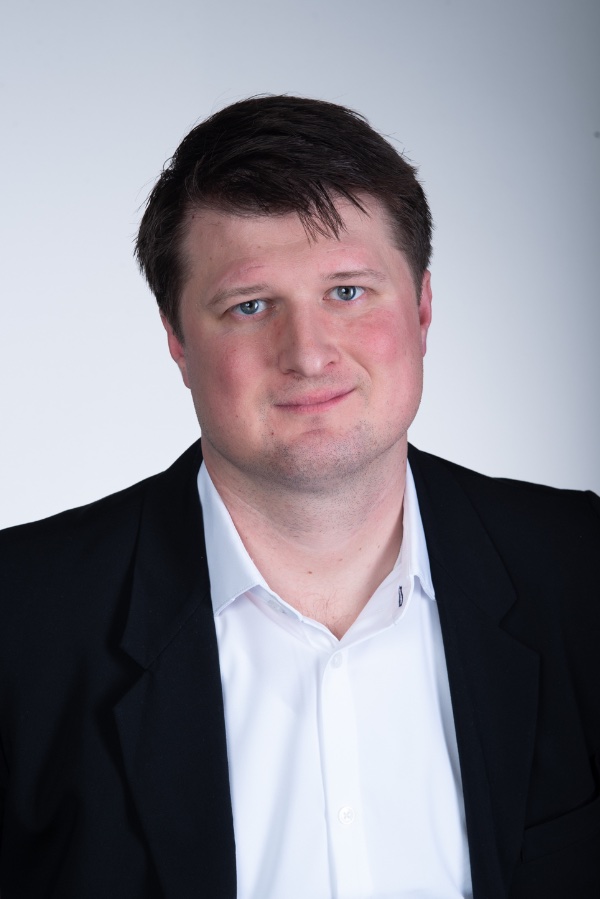
Michael Morisy
Cofounder and Chief Executive of MuckRock

